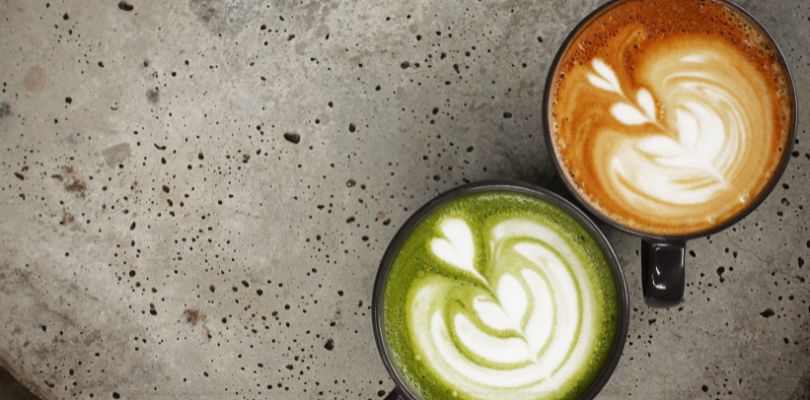Say Goodbye to These Drinks
While many people are aware that sugary sodas and alcohol can be harmful, there are lesser-known beverages that should also be avoided if you are dealing with a brain tumor. These drinks may seem harmless, but they can cause inflammation, affect brain function and interfere with the body's healing process. Adjusting your diet is important, but you should also talk to your doctor about medical treatments like Ojemda, which can help slow the growth of brain tumors. In this article we explore some lesser-known drinks to avoid with brain tumors and explain how they're hurtful.
1. Energy Drinks
Energy drinks, often marketed as a quick fix for fatigue, are loaded with caffeine, sugar and other stimulants. These drinks can be particularly harmful to those with brain tumors because they increase blood pressure and can overstimulate the nervous system. Excessive caffeine can cause headaches, which may exacerbate the symptoms associated with brain tumors.
The high sugar content in energy drinks can also cause rapid blood sugar spikes, leading to inflammation in the body, which can interfere with healing. Additionally, stimulants like taurine and guarana found in energy drinks can worsen anxiety and disrupt sleep patterns, both of which are critical for recovery from brain tumor treatments.
2. Diet Soft Drinks
Although diet soft drinks are often marketed as a healthier alternative to sugary sodas, they contain artificial sweeteners like aspartame, sucralose and saccharin. These sweeteners may contribute to neurotoxicity and have been linked to cognitive impairment in some studies. For individuals with brain tumors, consuming diet sodas could potentially worsen neurological symptoms, such as headaches, dizziness and mental fog.
Moreover, the caffeine in many diet soft drinks can also exacerbate symptoms like headaches and high blood pressure, which are already concerns for those with brain tumors.
3. Fruit Juices with Added Sugars
While natural fruit juices contain essential vitamins and minerals, many commercially available fruit juices are packed with added sugars. Consuming large amounts of sugar can lead to inflammation, which may interfere with brain tumor treatments and recovery. Additionally, excessive sugar can contribute to increased blood glucose levels, making it more difficult for the body to heal properly.
Even unsweetened fruit juices should be consumed in moderation by individuals with brain tumors. Natural sugars in fruit juice can still cause blood sugar spikes, leading to further inflammation and potential fatigue. It’s better to opt for whole fruits, which contain fiber to slow the absorption of sugars.
This article will explore the GIST drinks to avoid, looking at the biggest offenders. Read on to learn more here.
4. Flavored Coffee Beverages
Many flavored coffee beverages like lattes are loaded with sugar and fat. These beverages can lead to blood sugar spikes and increased inflammation, both of which are harmful for individuals with brain tumors. The caffeine content in these drinks can also overstimulate the nervous system and worsen symptoms such as anxiety, restlessness and headaches.
Caffeine can also affect sleep quality which is crucial for healing. It’s best to avoid sugary, caffeinated coffee drinks and instead opt for decaffeinated coffee or herbal teas.
5. Alcohol-Free Beer and Wine
While alcohol consumption is generally discouraged for people with brain tumors, alcohol-free beer and wine may also pose a problem. These beverages often contain trace amounts of alcohol, as well as additives and preservatives that can cause inflammation or trigger allergic reactions. For people with brain tumors, avoiding anything that could contribute to inflammation or stress on the body is critical.
Some alcohol-free drinks also contain high levels of sugar, which can lead to increased blood sugar levels and inflammation. Opting for non-alcoholic beverages like sparkling water or herbal tea is a better choice for hydration and overall health.
6. Milkshakes
Milkshakes may seem like a harmless treat, but they are high in sugar, fat and calories. The combination of sugar and saturated fat can lead to inflammation in the body, which is harmful for those with brain tumors. Excessive fat can also slow down digestion, causing delayed energy release and potentially contributing to fatigue. This is a common symptom for brain tumor patients.
Additionally, the high sugar content can cause rapid blood sugar spikes, leading to increased inflammation and worsening overall health. Opting for healthier, nutrient-dense snacks like smoothies made from whole fruits, vegetables and protein sources is a better option.
7. Sports Drinks
Sports drinks are often consumed to replace electrolytes after exercise, but many are high in sugar and artificial additives. For individuals with brain tumors, the high sugar content in these drinks can lead to inflammation and compromise the immune system’s ability to fight off disease or recover from treatments.
Sports drinks are also often packed with artificial dyes and preservatives, which may contribute to inflammation or cause allergic reactions. Instead of sugary sports drinks, hydrating with water or natural electrolyte-rich beverages like coconut water (in moderation) is a safer alternative.
Treatment Options for Brain Tumors
Managing brain tumors often requires a comprehensive treatment plan that may include surgery, radiation therapy, chemotherapy and targeted medications. While dietary choices can help support overall health and recovery, medical treatment is essential for addressing brain tumors effectively.
One advanced treatment option for specific types of brain tumors is Ojemda. Ojemda is a targeted therapy used to treat certain brain cancers. It works by targeting specific proteins in the cancer cells, slowing or stopping their growth while minimizing damage to surrounding healthy tissue. This approach can help reduce tumor size, alleviate symptoms and improve overall quality of life.







